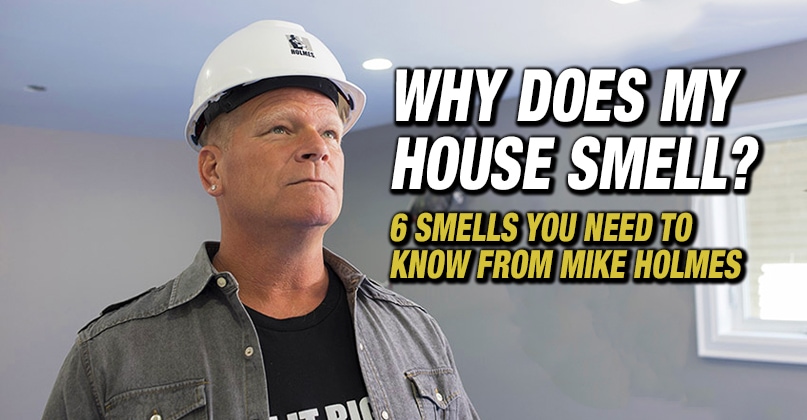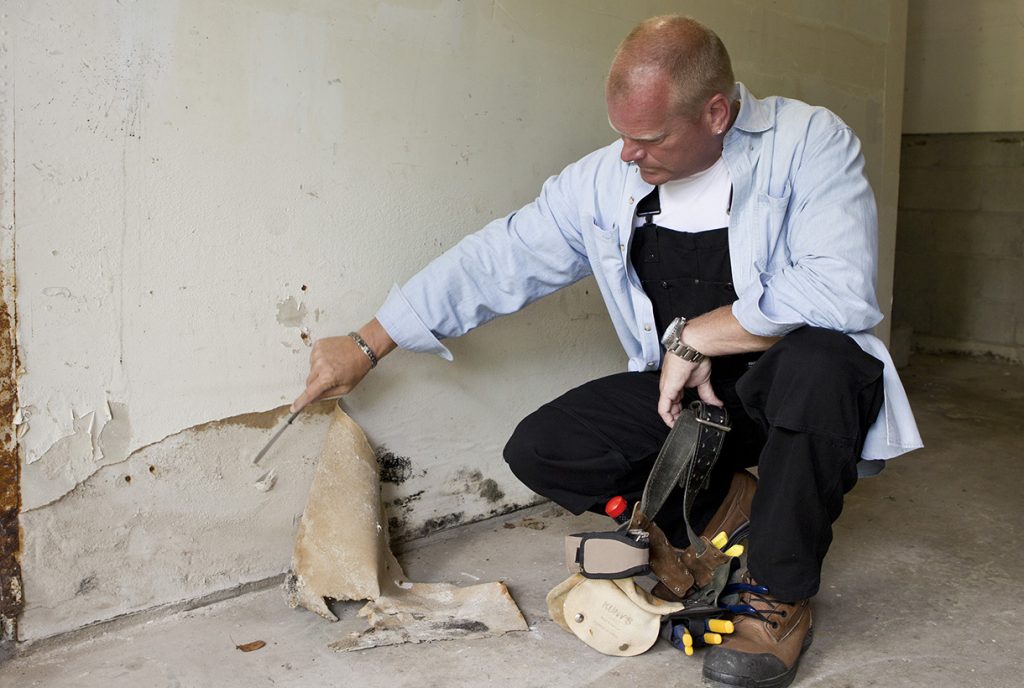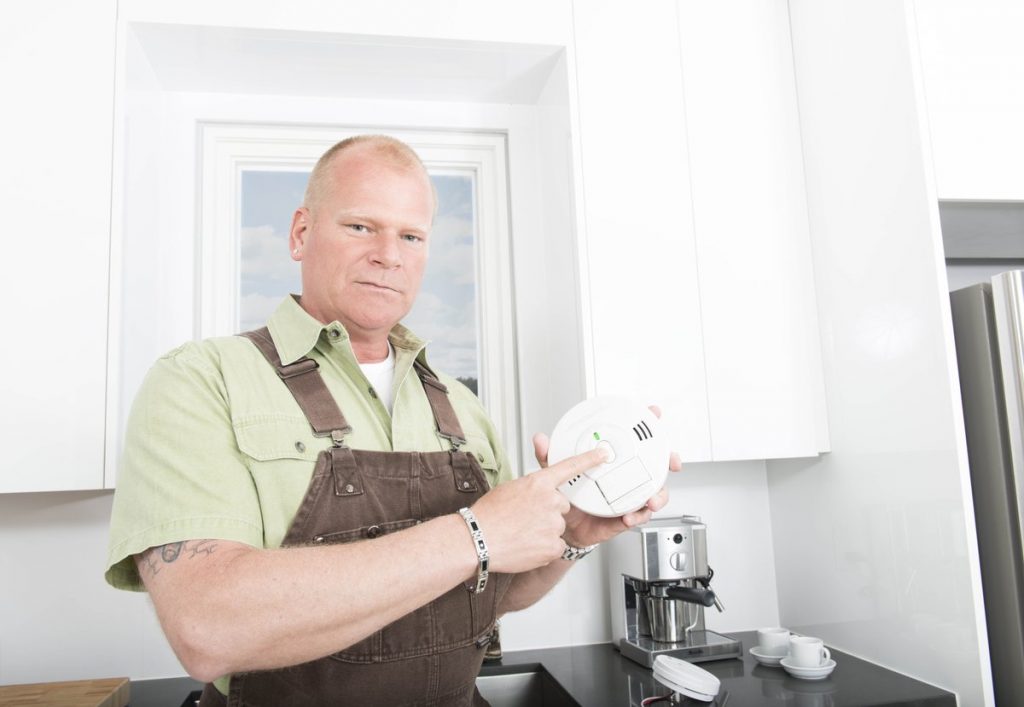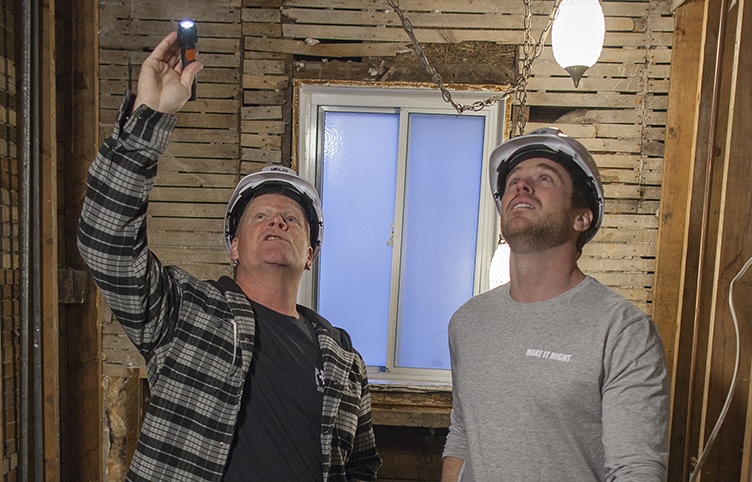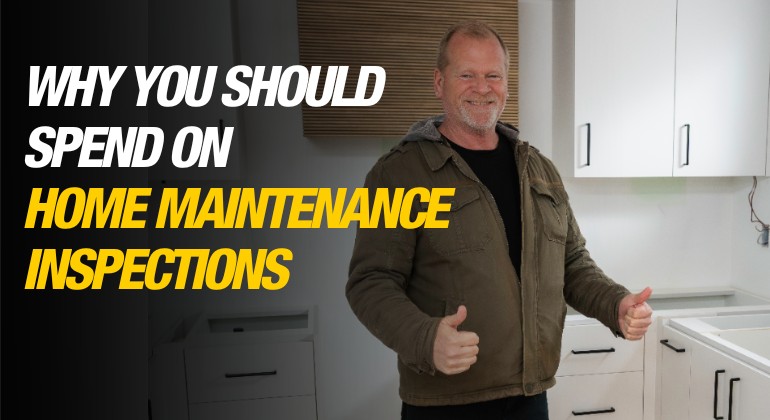I love exploring new technology—especially when it genuinely improves how we work in construction—and I recently came across one that truly impressed me, iGUIDE by Planitar Inc. In my...
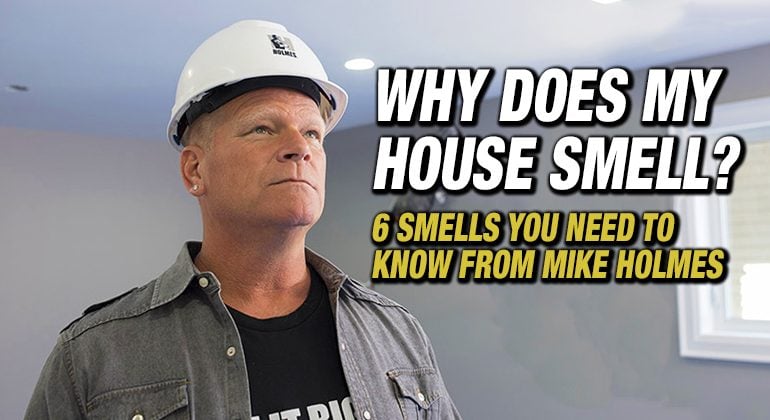
Why Does My House Smell? (6 smells you need to know)
By Mike Holmes
Mike’s Advice / Home Safety & Maintenance
Wednesday, July 24th, 2024 @ 9:38am
There are no detectors out there that will indicate the presence of bad smells. It’s up to your nose to tell you there’s a stinky smell in the house. It’s important to know what those odors are, and what you can do about them.
I’m not just talking about noticing and avoiding volatile organic compounds (VOCs)
when you smell them. I’m talking about training your nose to recognize dangerous odors that warn of potentially lethal outcomes such as a natural gas leak, an electrical fire or septic gas.
1) Rotten Eggs
This smell is probably septic gas, unless you have a carton of eggs hiding in your living room. Septic gas has a strong, naturally occurring odor that smells like rotten eggs.
The smell is hydrogen sulfide, which comes from sewage and indicates a potential issue with your plumbing. Prolonged exposure of even low levels of hydrogen sulfide can cause health issues such as headaches, fatigue, dizziness and loss of appetite.
What You Need To Do: If you smell it, there’s no need to evacuate your home, but do call a professional plumber to have things checked out.
If your home’s plumbing gets the all-clear and your home still has that rotten egg smell, you may have an issue with toxic drywall. The sulphur in the drywall will off-gas once there’s humidity in the air, which can cause health problems and can also corrode any exposed copper pipes or wiring in your home.
If you have toxic drywall in your home, even just a few sheets of it, I recommend tearing it out and having it replaced. And this is not a DIY job; it must be removed by a professional.
2) Skunk Smell
This is likely natural gas stinks. Utility companies add a strong smell to the naturally odourless gas to make sure that the smell is obvious.
It can smell something like a dead mouse or skunk. Should you smell it in your home, you need to act quickly. Don’t use electronics near the suspected leak, or turn lights or appliances on or off; anything that can cause a spark near a gas leak will ignite the house.
What You Need To Do: Turn the gas off at the source if possible. Leave your house and get in touch with your utility company. Remember, if the leaking natural gas has ignited and is burning, don’t attempt to put the fire out yourself. Leave the house immediately and call 911.
3) Smell of Something Burning
This should ring some alarm bells for you, especially if it smells like burning rubber. Appliances that have a burning smell when they’re on, or even lights in a room that smell like they’re burning, is a sign that something is dangerously overheating with the potential for a fire.
What You Need To Do: Locate your breaker box and turn off the circuit you think is causing the problem. Then, call a licensed electrician.
If you see flames, leave your house immediately and call 911.
And of course, always make sure you have a working smoke alarm on every floor of your home.
4) Mushroom Smell
A mushroom smell in your home (when you’re not cooking mushrooms) could be dry rot. Dry rot is caused by a fungus that sucks the structural strength and stiffness out of healthy wood, especially in older homes where wood framing wasn’t pressure treated.
Areas in your home that have high moisture are prone to dry rot. This is why proper ventilation is so important.
Dry rot thrives in high-moisture environments, so it’s important that your home has proper ventilation.
What You Need To Do: If you get that mushroom smell in your home and discover areas of dry rot, you’ll need to hire a qualified mold remediation company to get rid of it. Dry rot is progressive; not getting rid of it properly means that it will continue to spread and cause further damage.
READ MORE:
5) Musty or Mossy Smell
This is unfortunately a familiar smell to many people. Mold smells musty and mossy or like mildew. If you smell it, you can usually spot it. Take a look at your window sills, basements, bathrooms and ceiling corners – anywhere where there’s lots of moisture.
If there is a musty smell but you can’t see any stains, you may have mold growing behind your walls. In that case, you’ll need to hire a professional home inspector who uses thermal imaging to see what’s going on behind those walls.
Mold found in homes usually isn’t toxic, but it still presents a health risk and can cause allergy and asthma symptoms if inhaled.
What You Need To Do: If the mold in your home covers an area of 10 square feet or less, you can tackle the issue yourself. Just remember to use the proper protective gear. If the area is larger than 10 square feet, or if there’s sewage involved, bring in a professional remediation company to handle it properly and safely.
READ MORE:
Here’s how To Test Your Home For Mold
How To Remove A Musty Smell From Your House
6) Urine Smell
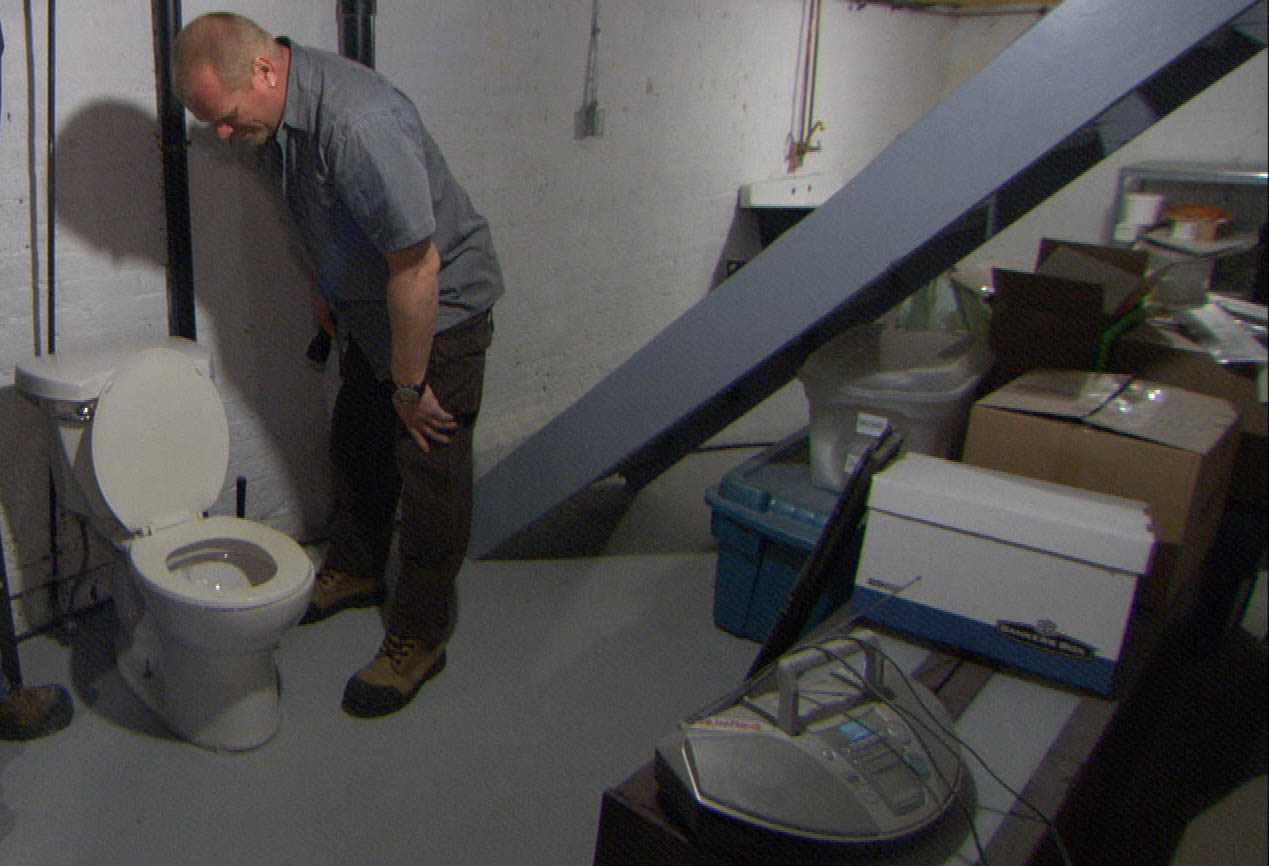
Accompanied by a stain on the ceiling, it could also mean raccoon infestation in the attic.
In some cases, it’s a red flag that the house might previously have been used as a lab to make methamphetamine. Residue can cause breathing problems, similar to an overgrowth of mold. Decontamination can cost thousands of dollars.
Why am I making a big stink about odors? So many homeowners do ignore or tolerate bad smells, until it’s too late. They never guess it’s affecting their health or, worse, signaling real physical danger brewing behind the walls.
How To Deodorize Your Home
We installed a spot purification system on several jobs, and it’s a fantastic system everyone should look into. It’s called WhisperAir Repair (utilizes Panasonic’s patented nanoe™ X technology), and it purifies contaminated air in your home and quietly deodorizes and removes unwanted smells for a fresher, cleaner indoor environment. Here are some other benefits:
- inhibiting the growth of bacteria, viruses, allergens, and mold. Here are some other benefits:
- It also breaks down hazardous substances, for a healthier home environment
- Quietly deodorizes and removes unwanted smells for a fresher, cleaner indoor environment
